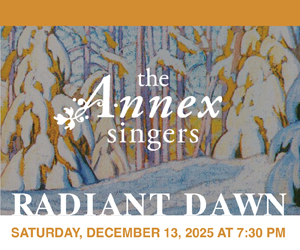For Portugal, a country that was still struggling to solidify its democracy in the 1980s following nearly 50 years of outright dictatorship, one unexpected byproduct of that struggle has been a burgeoning free music scene. Resourceful, the scene nurtured by the struggle for the country’s expanding freedoms now includes internationally known veterans like violinist Carlos Zingaro, younger local experimenters and has started to attract improvisers from elsewhere.
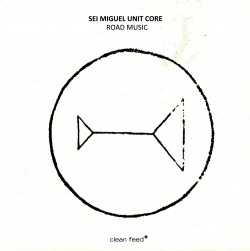 One experienced player is Paris-born pocket trumpeter Sei Miguel, who has lived in Portugal since 1986 and has propagated local free music since then. Road Music (Clean Feed CF 621 CD cleanfeedrecords.com/album/road-music) features ten tracks by his Unit Core recorded between 2016 and 2021. Most position Miguel’s smeared brass timbres in microtonal cohabitation with plunger tones from Fala Mariam’s alto trombone and Bruno Silva’s guitar clips and twangs with Pedro Castello Lopes adding rhythms from percussion instruments. These understated pulses are particularly effective on Sentinela and Canção, with triangle clinks decorating broken octave and unison short brass bites. Not only do the woody clave smacks provide a distinctive backing when joined with guitar strums on Canção, but Mariam’s contrapuntal designations take up as much space as the trumpet lines. Silva’s percussive string picking is featured on Sentinela #2 which provides a rare instance of the trumpeter moving past his usual breathy sighs to a sequence of bugling triplets that torque the tune’s excitement before harmonizing with the trombonist’s horizontal slurs. Otherwise, expositions are usually slow-moving and often descend into near stasis as dramatic bent notes and grit are favoured over unbroken lines and half-valve expressions. Still there are enough pivots throughout to trombone tailgate slides, trumpet squeaks and guitar twangs to feature tonal examinations along with related continuum.
One experienced player is Paris-born pocket trumpeter Sei Miguel, who has lived in Portugal since 1986 and has propagated local free music since then. Road Music (Clean Feed CF 621 CD cleanfeedrecords.com/album/road-music) features ten tracks by his Unit Core recorded between 2016 and 2021. Most position Miguel’s smeared brass timbres in microtonal cohabitation with plunger tones from Fala Mariam’s alto trombone and Bruno Silva’s guitar clips and twangs with Pedro Castello Lopes adding rhythms from percussion instruments. These understated pulses are particularly effective on Sentinela and Canção, with triangle clinks decorating broken octave and unison short brass bites. Not only do the woody clave smacks provide a distinctive backing when joined with guitar strums on Canção, but Mariam’s contrapuntal designations take up as much space as the trumpet lines. Silva’s percussive string picking is featured on Sentinela #2 which provides a rare instance of the trumpeter moving past his usual breathy sighs to a sequence of bugling triplets that torque the tune’s excitement before harmonizing with the trombonist’s horizontal slurs. Otherwise, expositions are usually slow-moving and often descend into near stasis as dramatic bent notes and grit are favoured over unbroken lines and half-valve expressions. Still there are enough pivots throughout to trombone tailgate slides, trumpet squeaks and guitar twangs to feature tonal examinations along with related continuum.
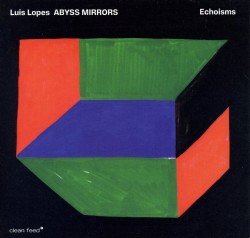 At nearly the opposite end of the sound spectrum is Echoisms (Clean Feed CF 628 CD cleanfeedrecords.bandcamp.com/album/echoisms) by young veteran Lisbon guitarist Luis Lopes and his Abyss Mirrors tentet. Featured on the seven tracks of the harsh and turbulent title composition are two saxes, two players using electronics, a three-person string section, an electric bassist and another guitarist besides Lopes. Although working without a drummer, there are enough guitar flanges, bass thumps and electronic pulses to anchor the angled and squeaky string glissandi as well as the doits, honks, smears and altissimo excursions from the reed players. Most sequences rumble along with Felipe Zenícola’s electric bass throb and electronics signals creating linearity until straight-ahead movement is shattered as Lopes’ and the one-name Flak’s effects pedal motions and unusual string techniques join with dog-whistle-like screeches from saxophonists Bruno Parrinha and Yedo Gibson to stretch the exposition to near schism until it rights itself by the following track. By the penultimate Echoism VI however a bagpipe-like tremolo drone from the dual saxes sets up the final track – and the suite’s – resolution. Moving through a building crescendo of cello, violin and viola spiccato shakes, jerky electronic whizzes and triple-tongued enhanced reed multiphonics, the resolution slows the narrative to single guitar licks cushioned by voltage pulsations.
At nearly the opposite end of the sound spectrum is Echoisms (Clean Feed CF 628 CD cleanfeedrecords.bandcamp.com/album/echoisms) by young veteran Lisbon guitarist Luis Lopes and his Abyss Mirrors tentet. Featured on the seven tracks of the harsh and turbulent title composition are two saxes, two players using electronics, a three-person string section, an electric bassist and another guitarist besides Lopes. Although working without a drummer, there are enough guitar flanges, bass thumps and electronic pulses to anchor the angled and squeaky string glissandi as well as the doits, honks, smears and altissimo excursions from the reed players. Most sequences rumble along with Felipe Zenícola’s electric bass throb and electronics signals creating linearity until straight-ahead movement is shattered as Lopes’ and the one-name Flak’s effects pedal motions and unusual string techniques join with dog-whistle-like screeches from saxophonists Bruno Parrinha and Yedo Gibson to stretch the exposition to near schism until it rights itself by the following track. By the penultimate Echoism VI however a bagpipe-like tremolo drone from the dual saxes sets up the final track – and the suite’s – resolution. Moving through a building crescendo of cello, violin and viola spiccato shakes, jerky electronic whizzes and triple-tongued enhanced reed multiphonics, the resolution slows the narrative to single guitar licks cushioned by voltage pulsations.
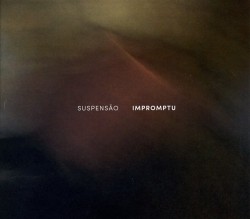 Although violist Ernesto Rodrigues and guitarist Flak from Lopes’ tentet are also part of the Suspensão octet on Impromptu (Creative Sources CS 773 CD creativesourcesrec.com/ ernesto_material/discography/disc_773.html) the music is as hushed as Echoism is boisterous. A single, almost 35-minute improvisation, whose 15-word title is nearly longer than the music itself, it confirms Portuguese improvisers’ versatility. With frequent silent intervals, the evolving track alternately connects and separates timbres that suddenly arise and just as quickly vanish. The introduction matches Carlos Santos’ synthesizer washes with Bruno Parrinha’s bass clarinet burbles as spiccato string vibrations, woody clanks and triangle pings from percussionist José Oliveira and Luisa Gonçalves’ occasional piano chords decorate and disrupt the exposition. One-third of the way along a combination of tougher guitar frails and Nuno Torres’ alto saxophone flutters pushes the narrative into horizontal motion. However that’s swiftly overcome by ray-gun-like whooshes and sul ponticello pressure from the violist and bassist João Madeira, while Gonçalves’ vibrating patterns from both keyboard and stroked internal strings reintroduce linear movement. A further expansion of altissimo cries from the reeds is subsumed by an unvarying double bass groove. Voltage drones and pinpointed but rugged metal percussion slaps then affiliate for a logical conclusion. Like much free form music the key isn’t resolution but the tonal varieties of evolution.
Although violist Ernesto Rodrigues and guitarist Flak from Lopes’ tentet are also part of the Suspensão octet on Impromptu (Creative Sources CS 773 CD creativesourcesrec.com/ ernesto_material/discography/disc_773.html) the music is as hushed as Echoism is boisterous. A single, almost 35-minute improvisation, whose 15-word title is nearly longer than the music itself, it confirms Portuguese improvisers’ versatility. With frequent silent intervals, the evolving track alternately connects and separates timbres that suddenly arise and just as quickly vanish. The introduction matches Carlos Santos’ synthesizer washes with Bruno Parrinha’s bass clarinet burbles as spiccato string vibrations, woody clanks and triangle pings from percussionist José Oliveira and Luisa Gonçalves’ occasional piano chords decorate and disrupt the exposition. One-third of the way along a combination of tougher guitar frails and Nuno Torres’ alto saxophone flutters pushes the narrative into horizontal motion. However that’s swiftly overcome by ray-gun-like whooshes and sul ponticello pressure from the violist and bassist João Madeira, while Gonçalves’ vibrating patterns from both keyboard and stroked internal strings reintroduce linear movement. A further expansion of altissimo cries from the reeds is subsumed by an unvarying double bass groove. Voltage drones and pinpointed but rugged metal percussion slaps then affiliate for a logical conclusion. Like much free form music the key isn’t resolution but the tonal varieties of evolution.
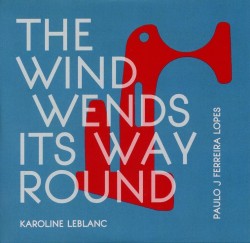 The same could be said for The Wind Wends its way Round (atrito-afeito 012 atrito-afeito.com) by Montreal pianist Karoline LeBlanc seconded on three of the six tracks by Portuguese drummer Paulo J Ferrreira Lopes. A frequent musical visitor to Portugal, the pianist’s playing completely negates the Canadian cliché of deference and politeness. Pouring intensity into her improvisations, all tracks are taken at presto or prestissimo tempos and emphasis is almost always on the ringing bottom notes. Sympathetically adding press rolls and rolling patterns, Lopes mostly stands aside from the boiling cauldron of emphasized notes. Perfectly capable of slowing the tempo, as she does on Porter ses pas, and able to leapfrog into treble clef tinkles from darker interludes at will, LeBlanc takes these quick changes in almost literal stride. Tinkling tonal interludes usually occur at the same time as her other hand is crunching and clattering basement notes that resonate through the soundboard and piano’s wood. Always in control, her pumped-note profusion may resemble those of a player piano, but there’s cerebral planning attached. Splayed and sputtering piles of notes may issue from the piano on the title tune and concluding Round Talk yet these hard returns and dips into darker timbres are heard in symmetry with unexpected glissandi detours or slapping rebounds. When it appears, as on The Wind Wends its way Round, that this pressurized playing will never lose its ferocity, LeBlanc surprises by rebounding to a measured pace and sudden stops.
The same could be said for The Wind Wends its way Round (atrito-afeito 012 atrito-afeito.com) by Montreal pianist Karoline LeBlanc seconded on three of the six tracks by Portuguese drummer Paulo J Ferrreira Lopes. A frequent musical visitor to Portugal, the pianist’s playing completely negates the Canadian cliché of deference and politeness. Pouring intensity into her improvisations, all tracks are taken at presto or prestissimo tempos and emphasis is almost always on the ringing bottom notes. Sympathetically adding press rolls and rolling patterns, Lopes mostly stands aside from the boiling cauldron of emphasized notes. Perfectly capable of slowing the tempo, as she does on Porter ses pas, and able to leapfrog into treble clef tinkles from darker interludes at will, LeBlanc takes these quick changes in almost literal stride. Tinkling tonal interludes usually occur at the same time as her other hand is crunching and clattering basement notes that resonate through the soundboard and piano’s wood. Always in control, her pumped-note profusion may resemble those of a player piano, but there’s cerebral planning attached. Splayed and sputtering piles of notes may issue from the piano on the title tune and concluding Round Talk yet these hard returns and dips into darker timbres are heard in symmetry with unexpected glissandi detours or slapping rebounds. When it appears, as on The Wind Wends its way Round, that this pressurized playing will never lose its ferocity, LeBlanc surprises by rebounding to a measured pace and sudden stops.
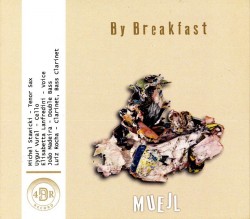 What hasn’t stopped is the number of Portuguese players experimenting with musical forms and collaborating with international players. MUEJL’s By Breakfast (4Da Record CD 006 4darecord.bandcamp.com) for instance, while recorded in Lisbon, features local bassist João Madeira, also on Impromptu, Brazilian clarinetist Luiz Rocha, French tenor saxophonist Michel Stawicki, Turkish cellist Uygur Vural and Italian vocalist Elisabetta Lanfredini. With the nine tracks as consolidated as the band name made up of the members’ initials, the program displays the tension generated from string/reed equilibrium, while Lanfredini stretches her tessitura to approximate timbres from lyric soprano nonsense mumbles, alpine yodels and wispy basso breaths. Contrapuntal results are expressed at greatest lengths on Kia’s Vocal Calls as the singer’s melismatic switch from bel canto to basement mumbles stretches still further the exposition defined by heavily vibrated bass thumps and warm clarinet lines. With Lanfredini moving to replications of davening at one point and Aboriginal chants at another, integration is invoked when vibrated drones from voice and reed become indistinguishable. Overall the five constantly move from lightness to darkness as chalumeau register clarinet and timed sul tasto string strokes can vanish in a maze of verbal nonsense syllables or, despite cross talk, bel canto vocalizing can smack up against reed tongue slaps and a mournful cello line. Furthermore, as demonstrated on Ohai Forest Suite, vocal mewling doesn’t detract from reed multiphonics, but climaxes in harmonized breathy tones.
What hasn’t stopped is the number of Portuguese players experimenting with musical forms and collaborating with international players. MUEJL’s By Breakfast (4Da Record CD 006 4darecord.bandcamp.com) for instance, while recorded in Lisbon, features local bassist João Madeira, also on Impromptu, Brazilian clarinetist Luiz Rocha, French tenor saxophonist Michel Stawicki, Turkish cellist Uygur Vural and Italian vocalist Elisabetta Lanfredini. With the nine tracks as consolidated as the band name made up of the members’ initials, the program displays the tension generated from string/reed equilibrium, while Lanfredini stretches her tessitura to approximate timbres from lyric soprano nonsense mumbles, alpine yodels and wispy basso breaths. Contrapuntal results are expressed at greatest lengths on Kia’s Vocal Calls as the singer’s melismatic switch from bel canto to basement mumbles stretches still further the exposition defined by heavily vibrated bass thumps and warm clarinet lines. With Lanfredini moving to replications of davening at one point and Aboriginal chants at another, integration is invoked when vibrated drones from voice and reed become indistinguishable. Overall the five constantly move from lightness to darkness as chalumeau register clarinet and timed sul tasto string strokes can vanish in a maze of verbal nonsense syllables or, despite cross talk, bel canto vocalizing can smack up against reed tongue slaps and a mournful cello line. Furthermore, as demonstrated on Ohai Forest Suite, vocal mewling doesn’t detract from reed multiphonics, but climaxes in harmonized breathy tones.
As Portuguese democracy continues to solidify, the hope – and expectation – is that creative music will evolve with it.



